Last Updated on August 2, 2021

While visiting the set of X-MEN: APOCALYPSE in Vancouver this past July, we had the opportunity to sit down with director Bryan Singer in a lengthy roundtable interview, where he was very candid about his involvement in the franchise, discussing everything from the inception of 2000's X-MEN, handing over the franchise to another director, rebooting his own films with X-MEN: DAYS OF FUTURE PAST, and so much more. The interview lasted about an hour and a half and while there were plenty of interesting topics throughout, I've condensed it down to the key talking points and most interesting items discussed, including a lot of new info about APOCALYPSE. Love his work on the franchise or not, Singer spoke passionately and at length about the X-franchise and it became obvious that he's invested a lot of time, energy, and commitment to Marvel's mutant universe. Check out the highlights below!
Minor SPOILERS, so be warned.

On why they chose to bring in Apocalypse to the franchise:
"Because it's just so different. We've always tread this theme of mutants vs humans and Apocalypse has two aspects that make him such a different character than I've traditionally explored in the universe. One is that he makes no distinctions between humans and mutants. He's interested in the Earth as a whole and the purity of civilization and the strongest. And secondly it deals with ancient mutantism, or the origins of the mutant state, or the origin of gods and religion. Which the X-Men universe has never touched upon any of those things and that stuff I loved when I was a kid. I read Chariots of the Gods when I was a kid, and I was fascinated with religion as a kid and cults and things like that. So that stuff made this so appealing to do, plus I love the characters so I love coming back with actors and people I know, and I love X-Men."
On his description of Apocalypse:
"The way I describe him the most, the best, is he to me is the God of the Old Testament and all that comes with that. If there isn't the order and the worship then I'll open up the Earth and swallow you whole, and that was the God of the Old Testament."
On using practical effects for Apocalypse (and other characters):
"Whenever I can go physical I try to. It gives the actors something to play with. What did Nicholson say when he played The Joker? Let the costume do the acting? There's a lot more that goes into it than that but nonetheless it makes it real. It makes it real for the actor and it makes it real for the people who are playing against the actor than when they're wearing a green suit with dots on it. Once the people at Legacy could prove it to me that they could pull it off, it was very complicated how to do that. It was just complicated. Once I saw a few key designs, surfaces, shieldings, panels, artistry, I was like Okay that's the guy, lets build it. Let's make it real."

On Apocalypse's powers:
"He does, he has a number of different powers that he's acquired over the years as he's moved from body to body, accumulating these various abilities. One of them is to imbue other mutants and to highten their powers and abilities beyond anything they ever imagined. Secondly, he can shield from psychic powers, he can form shields so that it makes it harder for a psychic like Xavier to tap in and get to them. He's not a psychic himself though. He can amplify your power, transform you as a mutant but his ability to physically damage, destroy, or build is in the non-biological world. That's in the physical world, he can change the inorganic molecules of things. These are some of the powers that we're exploring and there's some epic things that he does towards the end of the picture. I have to say in the end his greatest power is the power of persuasion. The abiltiy to know what he needs and who needs it out of and to get it from them as he does with the horsemen, and as he has through civilization after civilization for tens of thousands of years."
On Magneto's journey in the film:
"This one, the journey of Erik Lensherr, is a very big part of this movie. I think the two biggest journies are the journey of Erik, perhaps the journey of Raven, and on the younger side, the journey of Scott and Jean and their story as young characters. One of the biggest challenges, and its very emotional and its somewhat dark and you probably listened to hints of it if you watched any of the scene [Magneto being recruited by Apocalypse], is getting Erik to that place where he would follow. Because Erik is a super villain. He's dropped stadiums on the White House, whatever he does, and to get him to a place where he's ready to go there with this character, with Apocalypse. That was one of the biggest challenges and there's a scene Fassbender does with this movie, you always wonder whats going ot make the cut, but he did something that we were pulling the Kleenex out in the tent. I've never had that happen on the set."
On the three romances in the film:
"We rekindle romances, there's three romances we start together. One that I didn't really explore in Days of Future Past, but I did when I wrote the story for First Class, between Hank and Raven. We've got Jean and Scott. Suddenly Xavier and Moira start getting reconnected, so that's all starting to happen to. So there's a lot of rebirths and stuff."

On making the first X-MEN film when there was no template for comic book films:
"There was no concept. There was no template for it. Comic book movies had died, there was no concept of one as anything but camp. I took it on because I saw the thematics of it were interesting to me. I saw Xavier and Magneto as Martin Luther King and Malcolm X characters. I'm gay or bisexual, whatever, so that probably factored into it a bit because mutancy is discovered at that age in puberty when you’re different from your whole neighborhood and your family and you feel very isolated. So that probably factored into my decision to do it to some degree at least, and I wanted to get involved in action-adventure and this was an avenue to do it.
The studio had always wanted to make an X-Men movie. Andrew Kevin Walker wrote a script, there's a number of scripts that had been written, but after I met with Stan Lee who was wonderful and lovely, I just started to research the characters and I found them so compelling and their relationships with each other were so interesting that I thought 'I can make this universe really cool, and I can see it through Wolverine's eyes because he kind of doesn't buy it.' And this is where I will probably out myself as a non-comic book person, but I did not come from reading comic books. So for me I was very cynical about it, like 'They call themselves Cyclops, Storm, Sabertooth,' but with Wolverine, Logan, I said I can be Logan and by the end of the movie I can embrace this universe, so I can tell this story. Through him I can make this movie and I can make it like a film that happens to be based on a comic book, that happens to have action sequences in it, but it's still to me a film. It's not just genre. It's a film. Like Usual Suspects or Apt Pupil or whatever films I had made at the time."
On what he used as his template for the characters in the first X-MEN film:
"I wouldn't have thought to do it at the time. I really was focused on the X-Men people knew mostly from the animated series, I kind of used that as my template to be honest. I took the characters that were most popualr from that series and I used those as my main primary characters."
On the "real destruction" that's featured in the film:
"Yeah, it's global, it's a global situation. He wants to make a massive global change. I don't want to tell you what he's going to do but it's visually unique. He's going to do something really bad to the Earth that's going to cause a lot of people to not live and those that survive will be the strongest."
On the personal connection of setting the film in the '80's:
"Oh, so what I got to do was there was an arcade scene and they were calling it something else and I said 'No, no, we're calling it the Space Port where I played. And guess what? They're all coming out of Return of the Jedi.' This is going to be my 1984. The clothing, the everything, the whole vibe. A lot of it once we get into the action we're all over the world with a lot of the movie from Westchester, New York to Cairo to everywhere. It's different parts of the world but there is a little taste of what I remember from that period because this was my period when I was a teenager. I won't ruin one debate, they do have a debate over which is better: Empire or Star Wars. In the movie some of the characters and the conclusion I'm not going to tell you because it's going to get a reaction of some kind. A provocative one."

On how Apocalypse manages to stay alive for so long:
"Yeah he moves from body to body. Apocalypse himself is not a physical form, he's an energy. I don't know what he is. What he does is he accumulates powers over the millennia by moving from body to body, and what's wonderful is he thinks in the beginning of the film he's found this great body. I don't want to give away what the power of the body this mutant has but it's a familiar one that you've seen a number of very famous mutants have. It kind of ends up being the wrong one because he gets stuck in it for a long time, but then suddenly he has this opportunity and that becomes his agenda. So it's another interesting thing in the movie, the villain always has their agenda."
On why he keeps coming back to X-Men:
"I think it's the history. It's the history and the cast. I have a history with these characters and when I think of them in the hands of other people, their origins perhaps, I don't want someone else to be…. I hired Matthew (Vaughn) and I trusted him to tell the origin that I had told to Patrick and Ian when they asked me what their origins were. But I had to be part of it, I had to co-write it, I had to produce it, I had to be part of it. Just like this movie, to tell the origin of Jean and Scott and Storm. I didn't want to not be part of that, and I didn't want to not be part of where certain characters ended up. So I get drawn back in, it's that line like Godfather III. I try to get out because I have other ideas for other movies and things, but I really love this unvierse and I love these characters and I love these actors. We really had a great time. We really had fun on the last movie, they really got along great, and on this movie they're getting along better and we're having more fun, and I think they really liked Days of Future Past so they have more trust in me. So that's good, so you're not just jumping into a situation with a bunch of assholes. Nic and I did a bunch of movies together, Jennifer and I are friends. Michael and I, we all just kind of know each other's strenghts and weakness and challenge each others in fun ways and then party, lately I haven't been, I don't go out much anymore…
I mean I started it so long ago and it was nothing, there were no comic book movies, there was nothing. So to have anyone else take it, I mean, even if they screwed me in a deal or something I'd probably say fuck it. These aren't cash ins let me tell you. These are passion things for me. I do okay but it's not like “If I do another one I can buy a jet.” I really, really am drawn back to the cast and the characters and it's just as simple as that. Now there's new ones, those fuckers. So even if Fassbender and McAvoy and Lawrence go off I've got these three new ones and I'm like 'Now I like them and we're friends and I love Sophie Turner, she's like my sister. Shit. What if they want to do a movie?' There is something I'm developing secretly, hopefully I can squish that one in or just do it and we'll roll into it, that's very different and special to me."

On handing over the X-Men franchise to someone else or staying the course:
"…the Matthew Vaughn separation was helpful because I got to step back and see him take on this universe with this new cast and that kind of helped me, because he was doing it and I was on set some of the time. I was there mostly for casting and in post I gave a bunch of notes. I'm not a producer who’s going to hover and tell the director how to make the fucking movie. But it was good to step away and it would be interesting. So to answer what you were saying, about letting someone else take over X-Men. If they took it over in a certain way and didn't bury it into the fucking ground like some…like can happen. But actually take it to different levels and different places, and if I were wanting to work and liking the cast they found or we found, if I happened to be an attached producer because I'm involved with a lot of these movies anyway, I have a deal at Fox blah blah blah. I could see myself coming back around and finding myself in space with a bunch of mutants on a mission, in that environment.
Perhaps not the same tonal quality of James Gunn, but doing something outside of what I've done before that somebody else helped me lay the groundwork for. So I might be returning to X-Men, but it might be a whole different thing, and that could be appealing. If I'm so blessed to still have my career, I've been A-List for 20 years, that's very hard. Very hard to do, very hard to maintain that career, to be doing this consistently at this level for two decades. Not a lot of guys do that, it freaks me out every day. No it really does, I direct every film as if it's my fucking last, and first. I'm very self-conscious about how easily directors come and go, and people in the industry in general."

On James Cameron's advice for Days of Future Past:
"I sent a cut of the movie, of Days of Future Past to James Cameron. Almost finished but rough, but almost done. Because I value his advice and I pitched my time travel concept to him when I was at a party at Peter Jackson's, now I'm dropping all kinds of names, because I happened to be at the premiere of The Hobbit in New Zealand. But I found Jim and we started talking about time travel, and Jim hadn't talked about time travel since he made Terminator so he couldn't wait to talk about it. So for an hour and a half we're talking about time travel. We're talking about collpasing the super position and how it would work in quantum physics. So we have this big conversation and I thought 'I'm going to send the film to Jim.' So I sent the film to film and at the end of that movie, this is very interesting, when Wolverine woke up originally my editor was obsessed with this visual blurriness so when Wolverine is walking around he's seeing things in kind of a blurriness.
So I sent that to Jim and Jim called me up and goes 'Bryan that blurry thing made me think that the wool was going to be pulled out from under me and I was not satisfied. I thought it was going to be a lie and it had failed and it would all be dark and then suddenly it was okay.' So I pulled the effect, it was the only note Jim gave me. He said 'Oh I love the movie, it's going to be great,' but he said 'Let the audience enjoy the fact that it all turned out okay…in that future.' So I pulled the effect off and my editor was like “Oh I like it, it's so cool and weird!” and I'm like “Shut up it's coming off!”
Plus the copy I sent James Cameron did not have the Famke Jensen or James Marsden or Beast cameo, so I explained that to Jim and I said “By the way it didnt have these three cameos” and he goes 'Oh, why didn't you tell me that?' That makes a big difference dude in letting me enjoy the ending of the god damn fucking movie!' and I'm like, 'Sorry, I'm keeping that so secret I didn't even want to let that go to New Zealand.' Even though it was hand delivered. The effect was in congruence too because when he wakes up in 1973 butt-ass naked that effect isn't used either so why have it there. So I eliminated it. That was Jim's note, Jim's always been such a guide. Cameron's such a wonderfull generous filmmaker in terms of sharing with other filmmakers and invites filmmakers to share and back and forth. I wouldn't know about mocap, he and Andy Serkis taught me how to do mocap and taught me how to do it fast."

On rebooting his own movies:
"Again, fucking with the reboot idea. I get to take control and reboot my own movie. I rebooted the universe so now anything can happen. So here's the plan, in my head, again giving away the plan because of the alcohol- The soda water. What happens when you use Days of Future Past to erase movies like X1, 2 and 3, yes you can erase those events that occurred, but I also was very adamant about having what we call 'The Tivo Scene.' The scene in that room with all the video cameras in Days of Future Past, I call it the Tivo scene. 'I developed this piece of technology that records television.' The point is time's immutability. The idea that time is like a river. You can splash it and mess it up and throw rocks in it and shatter it but it eventually kind of coalesces and this is, again, theories of quantum physics. It's all based in quantum physics.
So what I'm doing with these in-betweenqueels is playing with time's immutability and the prequel concept, meaning that yes we erased those storylines and anything can happen. That means the audience goes into the movie thinking that anything can happen. I mean anything, anyone could die. Any possibility could occur, but characters are still moving towards their immutable place. Jean and Scott, are they meant to be together? Is Scott this guy who hates schools, who ahtes authority, destined to become a leader? You don't know. Is Jean ever going ot disover the full potential of her power? You don't know, but we move in those direction character wise but then we have the freedom story wise to do whatever the fuck we want because we erased those three movies.
So it's an amazing opportunity. It's an amazing filmmaking opportunity that nobody has done, well I did with Days of Future Past, and it enables me to do that. I can do anything I want. The prequel, you don't know where it's going and yet you do kind of know where you want it to go, where you want to see those characters end up, and that's the beauty of it, of Days of Future Past, of what it did for me. That's why I fought so hard to make sure we have that Beast, Hank McCoy talk about the theory of time's immutability, because that defines what I'm doing with this universe and with these prequels to X1, 2 and 3 which are erased or are they not?"

On whether or not the happy ending of Days of Future Past can stick:
"Time can always be fucked with, we've now learned that. We've now learned that once you alter time that could be the future, but I don't believe if you look at all the X-Men movies and Days of Future Past, I don't believe that's definitive."
On killing off characters that are supposed to live:
"I'll kill any of those characters any day I want. They're all fair game. Anything can happen. When two things are happening simultaneously in quantum physics it's whats called the Super Position and when the Observer finally observes the outcome that's called the “Collapsing of the Super Position” which is what happened when Wolverine woke up and saw all the happiness. So yes that is the outcome we hope for, that is the outcome we aspire to, and that's the outcome we are moving towards, but we saw in Days of Future Past another dark world. What says that can't happen again? What says the awakening of a being that has such power and can acquire the power to destabilize that? So anything is possible. That's what we'd like to think happen, that's what Simon would like to think is a good outcome, but to me it's fair game."

On the mystery of Stryker and Raven at the end of Days of Future Past:
"Because I wanted to at least show that she made a choice, and what she's done…Xavier in the beginning of our movie, because he's wealthy and lives in Westchester and mutants are accepted by the world…on the surface…believes that it's all going to be great between humans and mutants and he sees this one day as not just a school but a sprawling universe where mutants and humans can study together. This is a line from the movie. You can see the basketball court out the window that I had especially built out of the tennis court from the estate we were filming it because that's the thing with the hole comes up with the jet…I'm trying to do homages and shit.
But Raven has a very different opinion. Raven she's seen Vietnam, she's seen the abuse, she's seen the murder. Now she's over in Europe, we find her in East Germany at the beginning of the movie and she sees the other side of racism, of bigotry. Yes, Martin Luther King won the Civil Rights movement…it's a process, it's a long ass process. Gay Marriage, whatever these things are, so she sees the antithesis of that. So she still knows the Strkyers of the world exist, they may exist off the grid. She knows there's other things going on with mutants. She knows just because they're polite about it doesn't mean there isn't prejudice and she is not willing to become, even though she stood in the middle of the stadium on the lawn of the White House and prevented a war between mutants and humans. In other words prevented a mutant from executing the president and his cabinet.
Whether you like Nixon or not that would have created a war between humans and mutants. She is the great mutant who stopped it. She's a legend. The blue transforming woman in our movie is a legend among mutants. She is a legend among all mutants. She is taught in the history books, but yet she remains anonymous. She remained Jenn Lawrence and other characters, and she does not, quote from our movie, “The face of a world that does not exist.” So she instead independently functions and helps out that part of the world that Xavier doesn't see and the two ideologies clash and that is how the X-Men are formed, and I've given you away the whole plot of the story. I just told you the whole story, in a nutshell."
MEET THE CAST OF X-MEN: APOCALYPSE HERE!
READ SIMON KINBERG'S LENGTHY DETAILS ON THE FRANCHISE AND ITS FUTURE HERE!
X-MEN: APOCALYPSE hits theaters on May 27th.






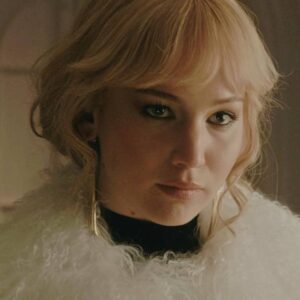
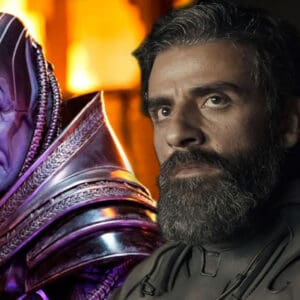
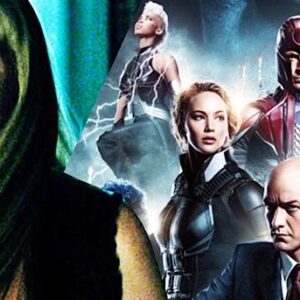
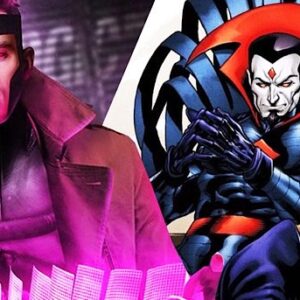

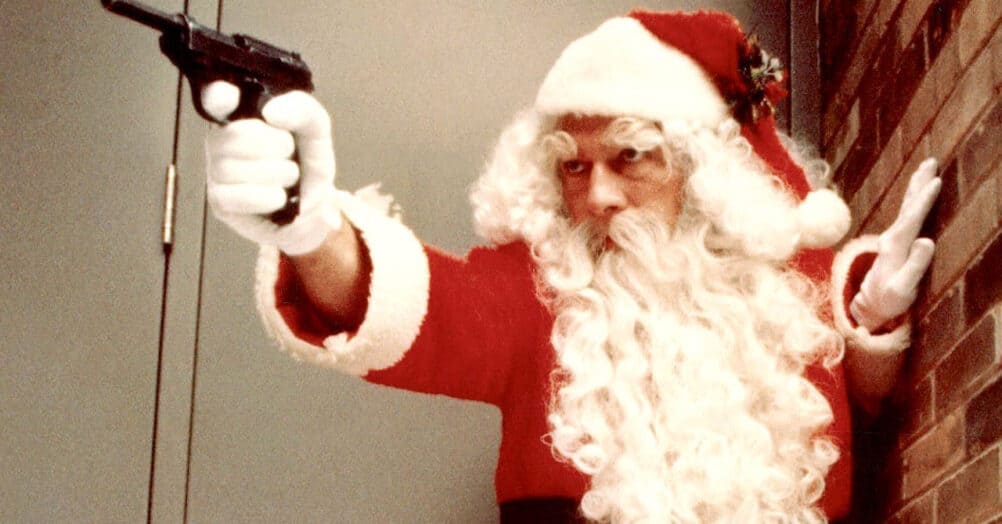

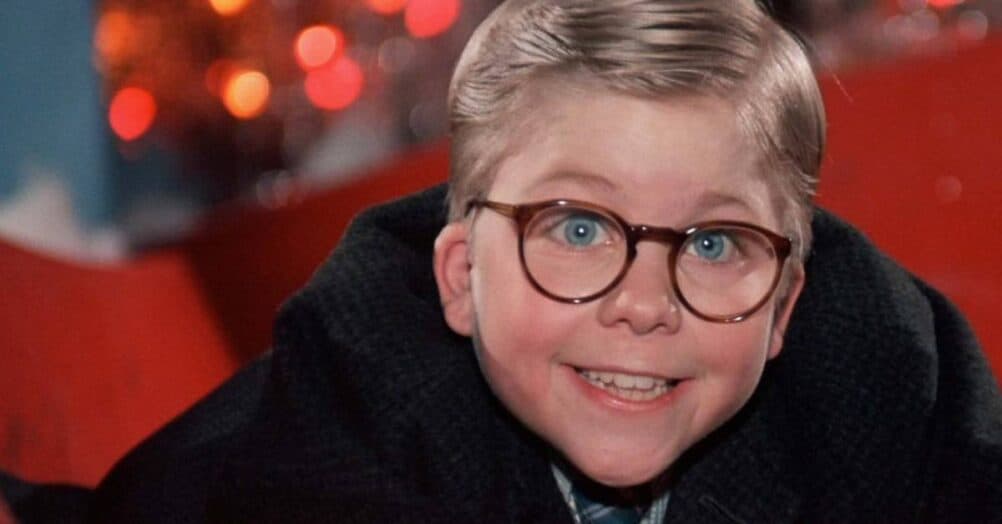






Follow the JOBLO MOVIE NETWORK
Follow us on YOUTUBE
Follow ARROW IN THE HEAD
Follow AITH on YOUTUBE